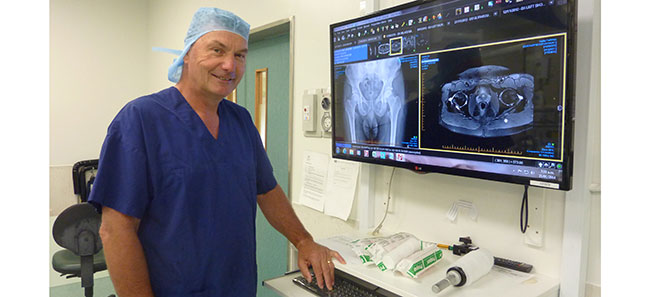
Surgeon and University of Otago, Christchurch Professor Gary Hooper.
A Christchurch professor is researching ways to reduce the impact of obesity on surgical waiting lists by helping individuals with weight issues.
Surgeon and University of Otago, Christchurch Professor Gary Hooper is studying whether overweight, arthritic patients can be placed on a diet which eliminates their need for surgery.
The ageing population and increasing numbers of obese individuals are causing an explosion in the requirement for hip and knee replacements.
"We have shown that flagging arthritic patients with a high BMI and placing them in a 'patient specific' dietetic programme can be successful in achieving significant weight loss. This weight loss often is permanent and particularly in the case of knee arthritis can reduce pain and the need for knee replacement. Obviously this has significant socioeconomic implications with the potential to release health expenditure to other areas of need."
Professor Hooper and his colleague have also done research showing outcomes for obese orthopaedic surgical patients are better than once thought.
"Patients with a BMI (body mass index) greater than 35 have often been denied surgery on the basis that they will have poorer outcomes than those with lower BMIs. Our research has shown that even for patients with a high BMI the outcome following joint replacement, as measured by early failure of the implant or poorer functional outcome, is unchanged compared to those with lower BMIs.”